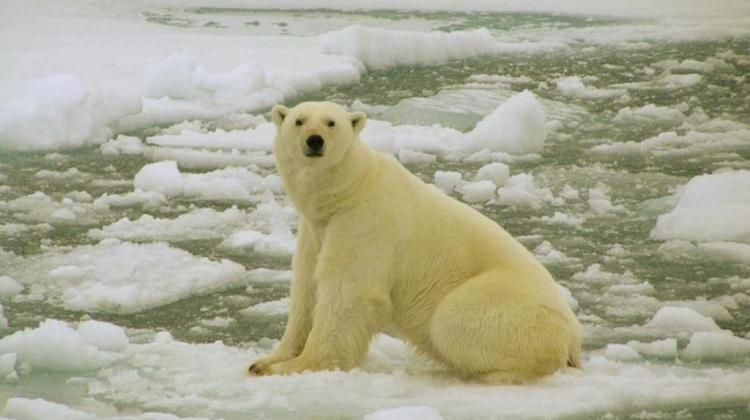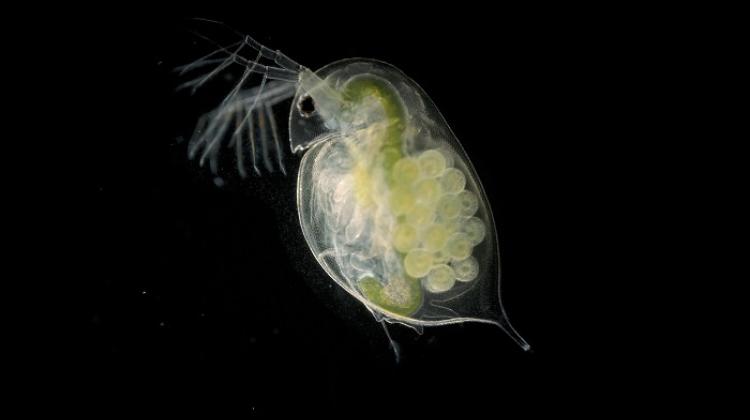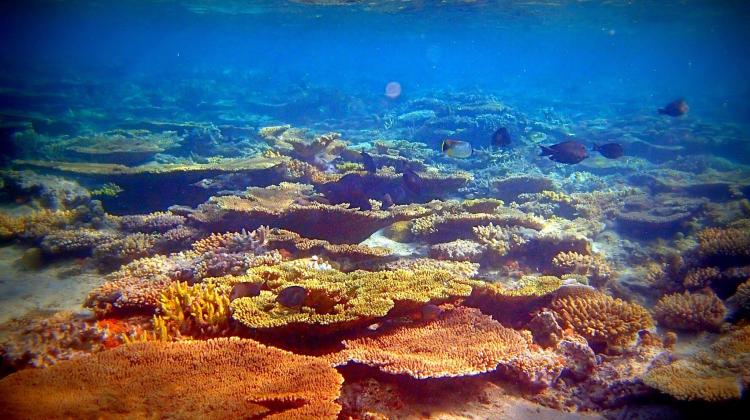Polar bears manage even when seals are gone

Birds, reindeer, even dead whales... When seals are gone, polar bears eat what they can catch. Polish observations in Spitsbergen confirm their attempts to survive in changing Arctic conditions.
In recent years, ornithologists from the Department of Ecology and Vertebrate Zoology, University of Gdańsk have witnessed unusual behaviour of bears. For about 10 years, in summer, they have been travelling to watch the birds in the area of Horsund fjord and Magdalenefjorden. During ornithological studies, they also observed abnormal behaviour of polar bears, which usually feed primarily on seals, told PAP Dorota Kidawa from the Department of Ecology and Vertebrate Zoology, University of Gdańsk, who participated in these studies.
Biologists specializing in the Arctic have been noticing for years that the situation of bears is becoming increasingly difficult due to the loss of floating ice floes and reducing ice surface, from which these predators usually hunt. The situation is worst during the Arctic summer, when ice range decreases very significantly. The presence of seals also reduces, and bears start to look for alternative sources of nutrition. They turn their attention to birds. They also will not pass up a whale floating in the fjord, killed by whalers or dead of natural causes - noted the ornithologist.
Polish scientists at Spitsbergen observed a bear with a whale carcass in 2010. It turned out that a whale provided a food supply for a long time. The meat, which last for a very long time, attracted few bears.
Ornithologists from Gdańsk also watched the bears hunt birds. This was quite difficult, but the bears used similar tactics as during the seal hunt: whey would swim under the water, then suddenly emerge and attack. They hunted geese and suillemots, birds somewhat resembling ducks - said Dorota Kidawa. Hungry bears sometimes also eat chicks of birds, such as terns, nesting directly on the ground, in the tundra.
In 2011, Polish researchers even observed a bear chase a reindeer. It was very unusual, because an adult bear does not have a chance to catch a much faster, agile reindeer. The bear’s chances are reduced by inability to long run, during which the bear will tire quickly. Therefore, such hunt lasts for a short time. Researchers watched a bear trying to chase a reindeer, also in the water. The reindeer managed to escape it pursuer.
Scientists who started going to Spitsbergen in the 1970s mentioned that a reindeer carcass would remain intact for many weeks - recalled Dorota Kidawa. According to ecologists, bears hunting the species that are normally on their menu may indicate a reduction in the quantity or availability of seals, their natural food.
Scientists specialising in the Arctic climate predict that due to global warming the local sea ice cover will continue to shrink. According to scientists, during the summer it could disappear almost completely in just a few decades.
The changes occurring in the Arctic and polar regions were discussed during the Arctic Science Summit Week 2013 in Kraków. This year\'s event, coordinated by the International Arctic Science Committee (IASC), was organized by the Committee on Polar Research PAS and the Polar Consortium - alliance of universities and PAS research units that conduct studies of the Arctic.
PAP - Science and Scholarship in Poland
zan/ tot/ mrt/
tr. RL
Przed dodaniem komentarza prosimy o zapoznanie z Regulaminem forum serwisu Nauka w Polsce.


















